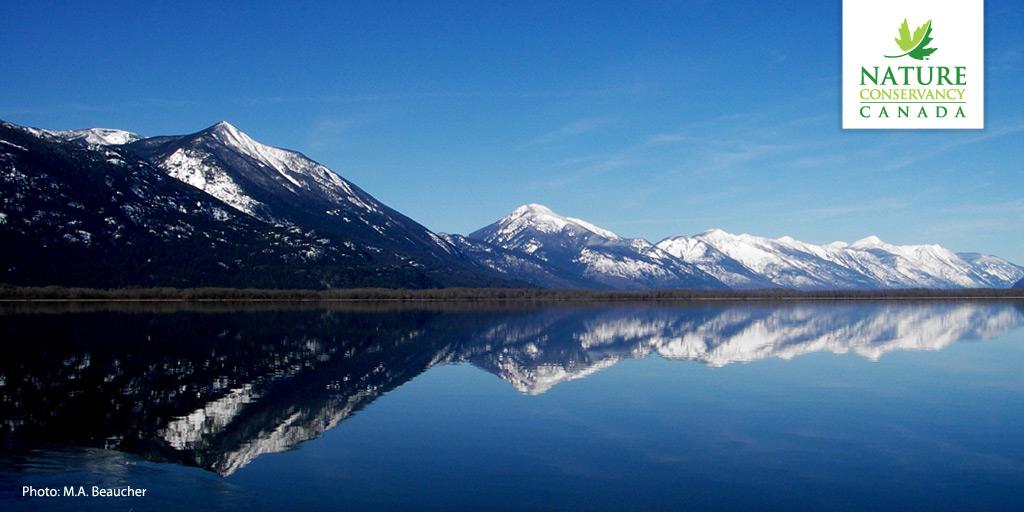
The staggeringly large benefits of conserving nature http://wpo.st/CwnQ0 @chriscmooney via @washingtonpost #conservation
Chris Mooney
@chriscmooney
Energy and environment writer at @washingtonpost, also tweeting at @postgreen.
Post Green
@postgreen
The Washington Post's environment, climate change, and energy coverage. Tweets by @chriscmooney.
Washington, D.C.
Joined April 2008
Energy and Environment
The staggeringly large benefits of conserving nature
By Chris Mooney July 13
This is the latest installment of a weekly column on energy and the environment — “Planetary.” This column will draw together major trends in this sphere and provide analysis and perspective that extend beyond our daily reporting.
In the past few weeks, as I’ve written about research showing that living near trees has demonstrable benefits to your health, and that nature walks might help battle depression, I’ve noticed a recurrent reaction from readers.
The top response seems to be some variant of, “duh, we knew that already.” In other words, a lot of people think it’s obvious that nature experiences are healthy and fulfilling.
[New research suggests nature walks are good for your brain]
And yet at the same time, these articles are being shared pretty widely. It seems the beneficial effect of nature is both something that we feel we already recognize — and yet also something we think others still need to know.
In a way, that’s not so surprising. The human connection to nature is ancient and, probably, part of the wiring of our brains. So in this sense, yes, it is obvious that greenery is good for us.
But it’s also indisputable that we don’t always act like we realize this. Across the globe, forests are burning or crashing down, species are vanishing, and the globe’s human population is more and more concentrated in urban areas and megacities. However much we appreciate nature, it isn’t enough to make us rein in other tendencies, especially economic imperatives, that ultimately fuel environmental and ecosystem destruction, as well as a disconnection from the natural world.
That’s a longstanding tension — but if there’s anything new to this dynamic of late, it’s a wave of science that is finally pinning down the true cost of damaging our natural surroundings — and the true benefits of preserving or expanding them. After all, it’s one thing to say you like the outdoors — who doesn’t? — and quite another to learn about findings like one reported last week: An increase of 11 trees on a city block is comparable, in terms of improved cardio-metabolic health, to raising people’s income by $20,000 or making them 1.4 years younger.
[Scientists have discovered that living near trees is good for your health]
Source: http://www.washingtonpost.com/news/energy-environment/wp/2015/07/13/were-finally-starting-to-realize-what-nature-is-really-worth/?postshare=8831436997694431
By Chris Mooney July 13
This is the latest installment of a weekly column on energy and the environment — “Planetary.” This column will draw together major trends in this sphere and provide analysis and perspective that extend beyond our daily reporting.
In the past few weeks, as I’ve written about research showing that living near trees has demonstrable benefits to your health, and that nature walks might help battle depression, I’ve noticed a recurrent reaction from readers.
The top response seems to be some variant of, “duh, we knew that already.” In other words, a lot of people think it’s obvious that nature experiences are healthy and fulfilling.
[New research suggests nature walks are good for your brain]
And yet at the same time, these articles are being shared pretty widely. It seems the beneficial effect of nature is both something that we feel we already recognize — and yet also something we think others still need to know.
In a way, that’s not so surprising. The human connection to nature is ancient and, probably, part of the wiring of our brains. So in this sense, yes, it is obvious that greenery is good for us.
But it’s also indisputable that we don’t always act like we realize this. Across the globe, forests are burning or crashing down, species are vanishing, and the globe’s human population is more and more concentrated in urban areas and megacities. However much we appreciate nature, it isn’t enough to make us rein in other tendencies, especially economic imperatives, that ultimately fuel environmental and ecosystem destruction, as well as a disconnection from the natural world.
That’s a longstanding tension — but if there’s anything new to this dynamic of late, it’s a wave of science that is finally pinning down the true cost of damaging our natural surroundings — and the true benefits of preserving or expanding them. After all, it’s one thing to say you like the outdoors — who doesn’t? — and quite another to learn about findings like one reported last week: An increase of 11 trees on a city block is comparable, in terms of improved cardio-metabolic health, to raising people’s income by $20,000 or making them 1.4 years younger.
[Scientists have discovered that living near trees is good for your health]
Source: http://www.washingtonpost.com/news/energy-environment/wp/2015/07/13/were-finally-starting-to-realize-what-nature-is-really-worth/?postshare=8831436997694431
No comments:
Post a Comment